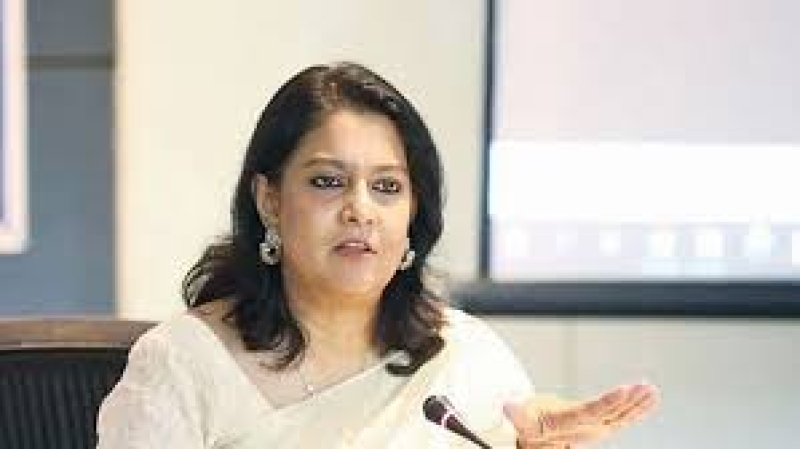- Eid-ul-Fitr in Saudi Arabia today (Sunday) |
- Landmine blast near Bandarban border, Bangladeshi injured |
- Most Bangladesh cities unprepared for earthquakes, says IPD |
- Dhaka’s footpaths abuzz with low-income Eid shoppers |
- Dr Yunus back home ending his hugely successful China visit |
Adviser Rizwana Urges Regional Cooperation to Tackle Air Pollution

Environment Adviser Syeda Rizwana Hasan
Environment Adviser Syeda Rizwana Hasan on Thursday called for effective regional cooperation to address transboundary air pollution, stressing that around 30-35% of Bangladesh's air pollution originates from neighboring countries.
"To tackle this issue, we need to move beyond political discussions and focus on practical measures and regional collaboration," she said while virtually addressing the World Bank’s South Asia side event at the World Health Organization’s second global conference in Cartagena, Colombia.
Rizwana acknowledged the importance of agreements like the Kathmandu Roadmap among South Asian nations but emphasized that stronger initiatives are necessary to combat air pollution effectively.
She highlighted that Bangladesh has finalized its Air Quality Control Regulations, aligning them with WHO's interim targets. These regulations set standards for polluting sectors and establish a framework for controlling both domestic and cross-border pollution.
"The implementation of the National Air Quality Management Plan, finalized in 2024, was delayed due to political instability, but it is now being executed effectively to reduce pollution risks and increase clean air days," she added.
The adviser also mentioned the Bangladesh Clean Air Project, supported by the World Bank, which is in its final stages and set to be implemented soon. The project focuses on strengthening regulatory frameworks, expanding pollution monitoring systems, and modernizing the public transport sector.
Rizwana announced plans to designate areas around Dhaka as "brick kiln-free zones" and phase out old buses starting in May through a joint initiative by the Ministry of Environment and the Bangladesh Road Transport Authority (BRTA).
To address dust pollution, one of the major contributors to poor air quality, initiatives like urban greening along roads and increased street cleaning efforts are being planned.
She noted that the demolition of illegal brick kilns has already improved air quality, but sustained progress will require stricter monitoring and modernization of polluting sectors.
Rizwana stressed that air pollution causes thousands of deaths in Bangladesh each year, with residents of heavily polluted cities like Dhaka losing 5-7 years of their life expectancy.
"This crisis affects all of us—our children, parents, and future generations. The cost of inaction is too high. We must act now," she said, expressing optimism about finding a solution. "We have the technology and alternatives; what we need is commitment and implementation. Air pollution is not just an environmental issue—it is a humanitarian crisis."
The conference was attended by ministerial representatives, policymakers, international organizations, researchers, and civil society members from across South Asia.

